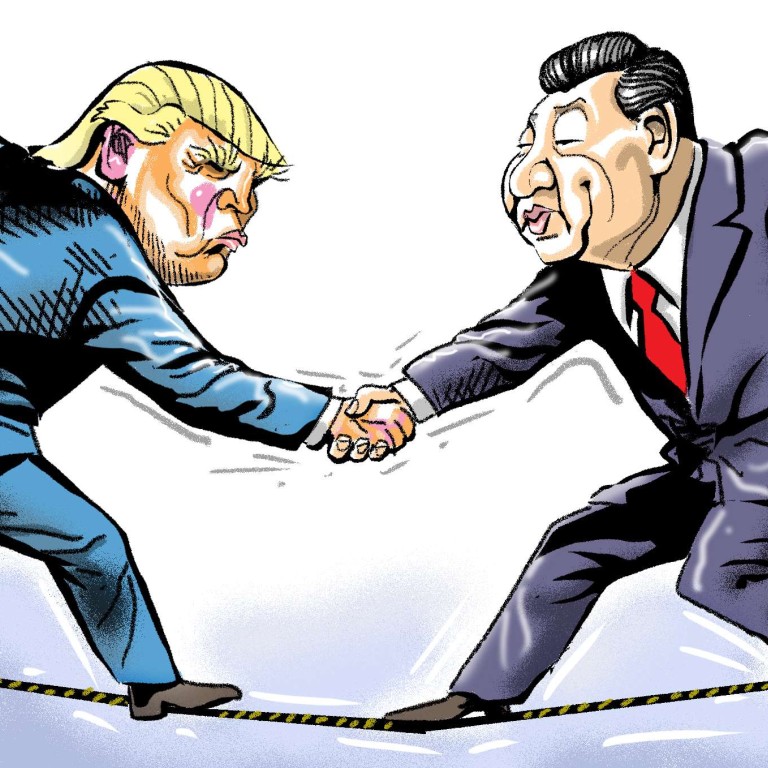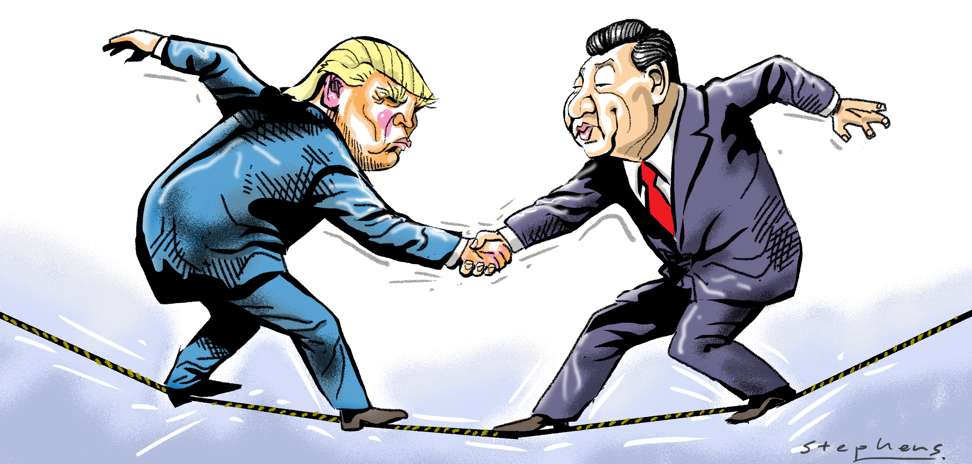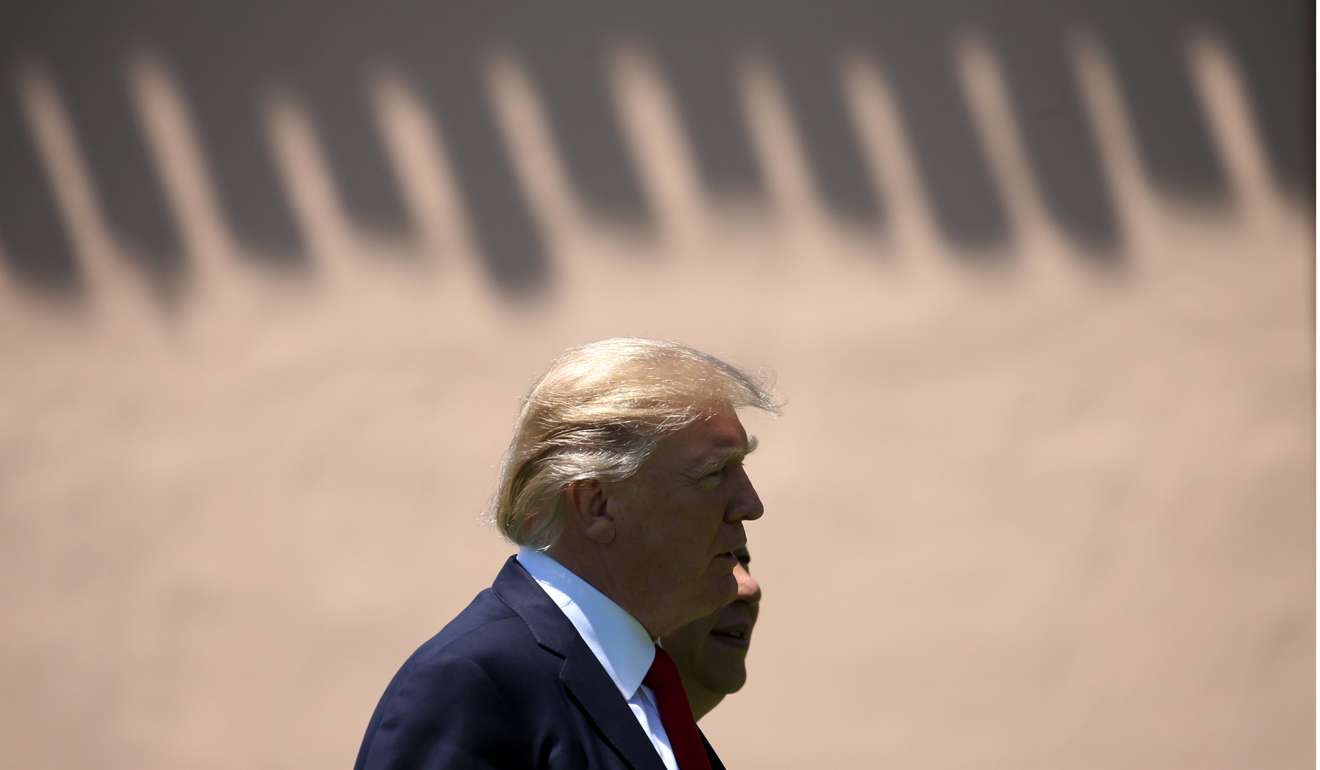
Why the US needs China to succeed, and vice versa
Tom Plate says whether to cooperate or not isn’t really a choice when survival is at stake for the US, China and the rest of the world

Watch: Donald Trump’s remarks at dinner with Xi Jinping
China, as even the disturbingly unschooled Trump understands, has arrived. To put the matter bluntly (and to put aside for now the US strike on Syria), China is no ordinary nation, and, with all due respect to Japan and its extraordinary place in the world, America’s relationship with China is its single most important bilateral relationship.
But their histories are so different. “It is scarcely appreciated in the West today,” writes journalist Howard French in his refreshing and utterly essential new book, Everything Under the Heavens: How the Past Helps Shape China’s Push for Global Power, “that the ‘international system’ we so readily take for granted is actually a recent creation. It took shape between the middle of the nineteenth and the middle of the twentieth centuries, and started to be cobbled together at the precise moment that China was being subjugated by others and the world order it had sustained.”
China, as even the disturbingly unschooled Trump understands, has arrived
The new international system is now working its way into our lives, and change can be upsetting. Many Americans worry about China and some even insist war is inevitable. This is not going to happen. Neither China nor the US will ever invade the sovereign territory of the other. Such primitivism would be nonsensical. There is a no valid reason, neither ideological nor geopolitical, to justify war. It would be a stupidity – a plunge into a black hole of insanity. Both would be morally guilty of world endangerment, and both governments would reveal themselves as pathetically incompetent.
An enduring, high level of cooperation between the two giant powers is the only intelligent way forward if the species itself is not to be endangered by the lowliest level of international non-cooperation: nuclear war.
Yet, I suppose anything is possible. For example (and I found this personally hard to stomach), some in the US media rushed to praise the US missile strike on a Syrian airfield with near-war lust – dropping their independent, critical role as if it were a false front all along. This cheerleading was so depressing – reminiscent of the media’s go-go lust in 2003 for the Iraq invasion.
Watch: MSNBC’s Brian Williams is ‘guided by the beauty of our weapons’ in Syria strikes
On live TV broadcasts, one media figure celebrated the Tomahawk launches as “beautiful pictures at night”; another gushed “there is much to applaud in President Trump’s decision to attack the Assad regime...” The warmongering instinct of our media is not its finest trait and is sometimes frightening.
Many Chinese believe their nation is the new big thing and the United States is a big old thing. Some Americans agree – that the US is declining while China (in the phrase of Joseph Nye in his nifty book, Is the American Century Over?) is “recovering”. Both sides are only half right, and this is the paradox of today’s emerging world order. To borrow from Oscar Wilde in his book, The Picture of Dorian Gray: “The way of paradoxes is the way of truth. To test reality we must see it on the tightrope.”
Your quick guide to the outcomes of landmark Xi-Trump summit

Summit was not quite the meeting of equals Xi would have wanted
In the present case, the tightrope is China and the US trying to stay on a balanced message. China is rising, obviously, but any serious loss in economic ground speed will cause the superliner to stall. Any crash would be devastating, and not just in Asia. And while America is not declining (in my opinion), it is in a kind of holding pattern – lumbering along in contrast to China’s returning to its ancient vigour.
When, if ever, will China “overtake” the US? Certainly not tomorrow: China’s population is ageing while America’s is freshened by immigration.
Many Americans worry about China and some even insist war is inevitable. This is not going to happen
The two political systems are deeply flawed: the former often moves too rigidly under central command; the latter will freeze up due to constitutional fragmentation and two-party uncivil war. Each in its own way is dysfunctional and semi-effective. The consequences of Chinese “stall” and American “stasis” would suck the life out of the global economic bloodstream. It is thus in the core national interests of both China and the US to help one another if others are to thrive as well.
This positivistic geopolitical proposition is not shared widely enough in either country. The opposite view is all too common. This means both sides, in effect, root for the other to fail. This could add up to a doomsday machine – triggering world collapse, maybe even a world war.
The Sino-US relationship hangs on the tightrope of a paradox. To keep from slipping off, each needs the other to succeed to maintain balance. Instead of leading to war, the challenge is to keep the geopolitical equipoise steady. Only a balance of mutual need can solidify the peace – and undergird a new world order.
Loyola Marymount professor Tom Plate, vice-president of the Pacific Century Institute and LMU’s distinguished scholar of Asian and Pacific studies, is a veteran columnist

